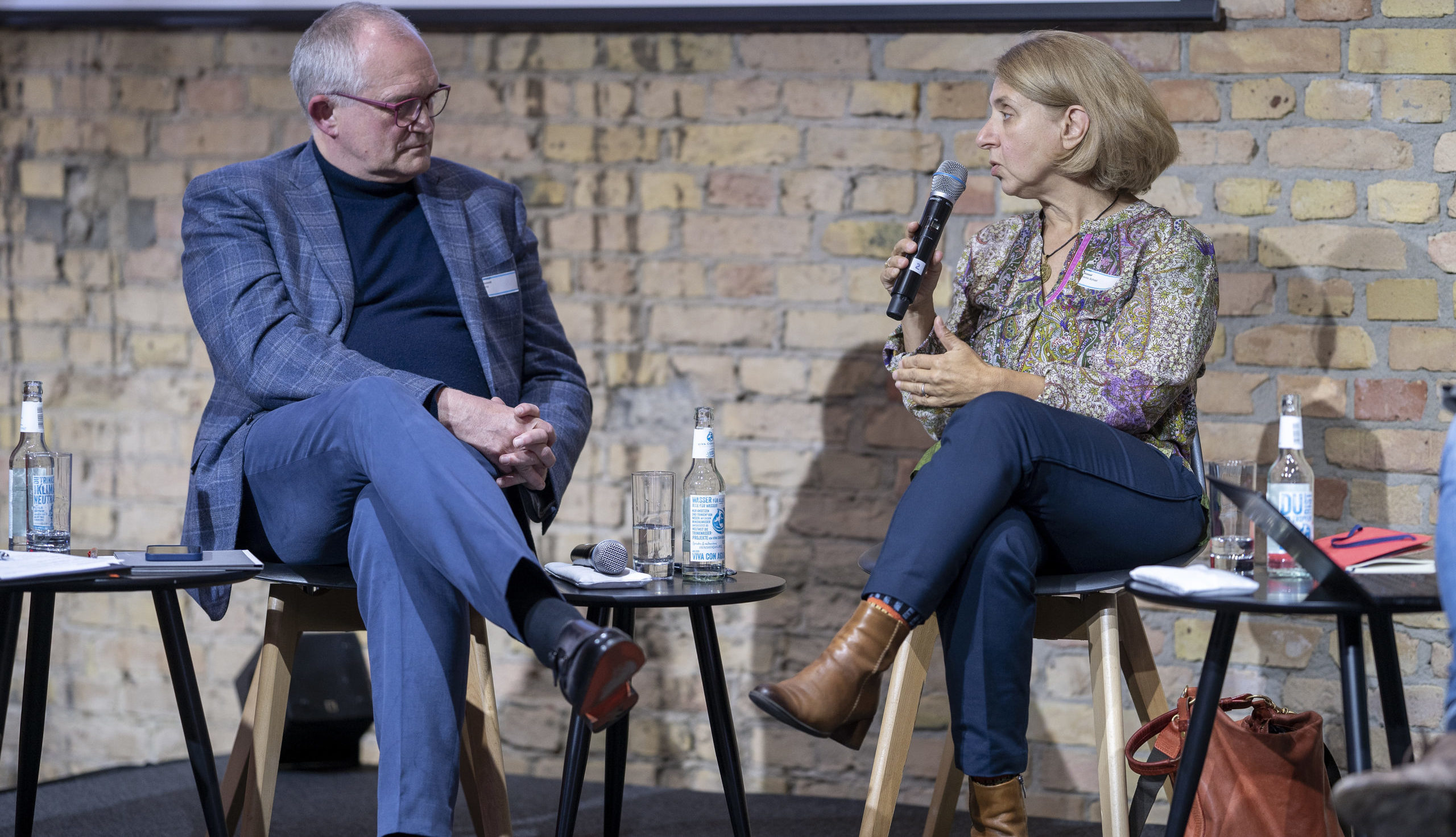NEW PARADIGM
Rebalancing Power? The Role of Trade Unions and Minimum Wages
Does labour need to be (further) strengthened? Anke Hassel, Stefan Körzell, Christoph Schmidt, Oliver Denk and Manuela Barišić discussed this.
BY
DAVID KLÄFFLINGPUBLISHED
7. OCTOBER 2022READING TIME
4 MIN
Globalisation, new technologies and deregulation have long weakened workers’ power. Is a major realignment now underway – with weakening globalisation, more regulation such as through minimum wages, and surprising demographic trends, e.g. the skills shortage? Is this a welcome development? And what can and should trade unions and governments do?
Anke Hassel (Hertie School), Stefan Körzell (DGB Executive Board), Christoph Schmidt (Director RWI Essen), Oliver Denk (OECD) and Manuela Barišić (IZA Bonn) discussed this at the XI New Paradigm Workshop on Good Jobs.
Oliver Denk began by presenting a chapter from the OECD’s latest Employment Outlook, which explicitly deals with market power and concentration on the labour market. This was an unthinkable topic at the OECD almost 30 years ago, when flexibilisation, liberalisation and deregulation still set the tone. Today, on the other hand, the OECD’s policy recommendation is: restrict the power of employers (ensure more competition and tighten anti-trust laws), strengthen workers’ power (minimum wage, collective bargaining, home office).
Anke Hassel agreed with the OECD’s basic diagnosis that the focus should no longer be on integrating market elements into the labour market, as was the case in the 1990s, but rather on inclusive and good jobs and greater collective bargaining coverage. In addition to market power, she provided another reason for this paradigm shift: increased wage spread and a growing low-wage sector due to active neglect of collective bargaining commitments and minimum wages.
DGB Executive Board member Stefan Körzell emphasised the attractiveness of collective wage setting between trade unions and employers’ associations and argued that the minimum wage was actually only a second-best remedy that declining collective bargaining commitments had made necessary.
Christoph Schmidt questioned the validity of the OECD report for individual countries and warned against mixing correlation and causality. He disagreed with the basic diagnosis that power lies with employers and also that there is a problem with good work. Demographic and structural change would strengthen the employee side anyway.
"The good jobs are already largely there. They don't even need to come back."
Manuela Barišić also addressed the labour economic paradigm shift once again. Falling real wages worldwide, especially for lower income groups, ensured that while the quantity of unemployment was still in the foreground in the early 2000s, there was now a major quality problem. The low-wage sector has two functions: Inclusion in the labour market and advancement in the labour market. While the first function worked well, these people often remained trapped in the low-wage trap. She also emphasised the qualitative progress in economic research, which has shown that minimum wages can make economic sense by shifting resources to more productive firms.
"We have good labour market research that dispels myths, such as the simple myth: minimum wage creates unemployment."
Christoph Schmidt then discussed the question of why such importance was attached to the low-wage sector and wage inequality in the first place, rather than focusing on secondary income distribution (after welfare state transfers). It would then become a problem if corporate profits and private wealth grew strongly without benefiting the employee side, and the state then had to fill this gap.
"Surely it must be the companies that pay wages so that families can live well, and not the state through its social security systems. Governments have understood that they can only finance their welfare state if employers also contribute through higher wages. Otherwise, the welfare state has to pay for what wage policy does not."
As a final round, the panellists once again collected in short key words which policy measures are important for the creation of good jobs from their point of view.
Oliver Denk:
- Facilitate the extension of working hours
- Strengthen collective bargaining
- Targeted aid for the energy crisis
Manuela Barišić:
- Strengthening wages
- Evidence-based labour market research
- Better labour market data
Stefan Körzell:
- Uniform federal procurement law
- Strengthening co-determination
- Prohibition of company spin-offs and underpinning of collective bargaining commitments
Anke Hassel:
- Equality of men and women via Ehegattensplitting and childcare
- Reducing the low-wage sector
- Education and (re-)training
